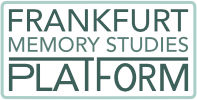Prof. Dr. Nadia Butt (Goethe University Frankfurt)
May 7, 2024
4 pm CET
IG 1.414, Campus Westend
Download the poster here.
This lecture examines transgenerational trauma in relation to family memories as narrated in Moroccan American writer Wafa Faith Hallam’s memoir The Road from Morocco (2011) and Indian American writer Anjali Entjeti’s historical novel The Parted Earth (2021). By focusing on two generically different texts set in disparate geographical and cultural landscapes, namely Morocco and India, the goal is to demonstrate how traumatic incidents within families as well as cataclysmic (historical) events shape memories and impact different family members. My contention is that both fictional and non-fictional texts engage with transgenerational trauma in their own distinct manner, as family histories spanning two to three generations intersect with historical catastrophes and political transformations in the Arab World (or North Africa) and South Asia. Thus, the family dynamic mirrors the changes in the social and political scenario into which the members are born. Whereas the family saga in The Road from Morocco unfolds from the birth of Faith Hallam in 1956 in Morocco, coinciding with the unification of Morocco, the return of the exiled King Mohammed and independence of the country, until Hallam’s new life after 9/11 in the USA; the events in The Parted Earth span from the partition of India in 1947 up to its 70th anniversary of independence in 2017 and trace the struggles of family members scattered abroad in the wake of the division of the Indian subcontinent. Drawing upon research on trauma, particularly by Stef Craps, Marianne Hirsch, and Gabriele Schwab, and locating trauma theory in a postcolonial context, I aim to investigate transgenerational trauma as presented in South Asian and Arab Anglophone women’s diasporic literatures from a feminist angle. To this end, I argue that transgenerational trauma tends to surface in three major ways, as the texts move between memory and history which act as family archives: Firstly, it surfaces in relation to postmemory (Hirsch 2012); secondly, it urges us to ‘decolonise’ trauma theory (Craps 2012); and finally, it lays bare the haunting legacies (Schwab 2010) of the first generation, transmitted to the second generation as indirect or ‘second-hand’ trauma (Kaplan 2005). By thinking beyond the Eurocentric orientation of trauma theory and placing it in a transnational and transcultural context (Rothberg 2008; Erll 2011), the lecture seeks to shed new light on the various literary representations of transgenerational trauma from a global perspective.
Nadia Butt is Professor of Global Anglophone Literatures and Cultures at the University of Frankfurt. She is the author of Transcultural Memory and Globalised Modernity in Contemporary Indo-English Novels (2015) and Other Routes: The Travelling Imagination in Anglophone Literatures from the Eighteenth Century to the Present (under consideration with Routledge). She has taught postcolonial literatures at the University of Giessen, the University of Muenster, and the University of Milwaukee-Wisconsin. In 2019, she was awarded the Dr. Herbert-Stolzenberg Prize by the University of Giessen, where she worked as a senior lecturer from 01.10. 2009 to 30.09.2023, for her outstanding achievements in teaching. Her main areas of research are transcultural theory and literature, mobility and migration studies, memory studies, Global Anglophone literatures, and travel theory and literatures. Her research has appeared in journals like Prose Studies, Journal of Aesthetics and Culture, Postcolonial Interventions and Studies in Travel Writing. Recently, she has published a handbook on The Anglophone Novel in the 21st Century: Cultural Contexts – Literary Developments (2023) together with Ansgar Nünning and Alexander Scherr.



